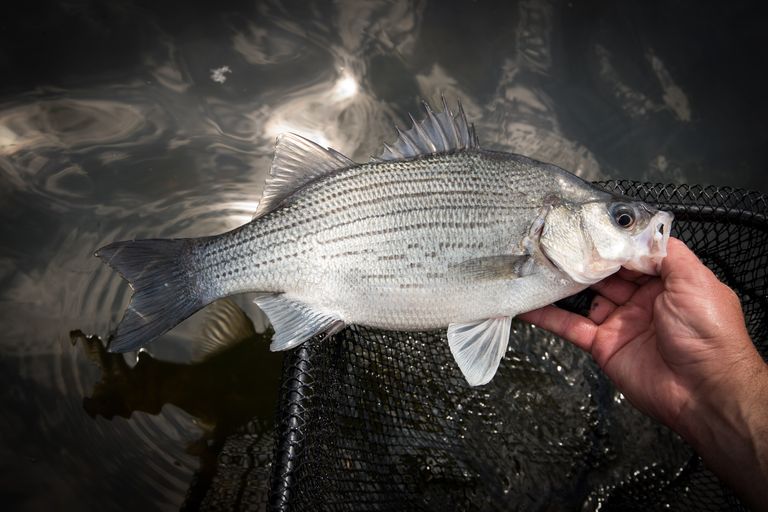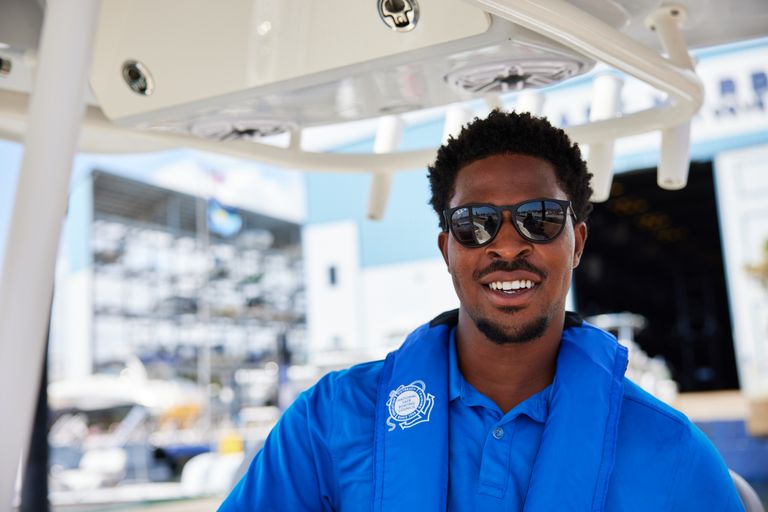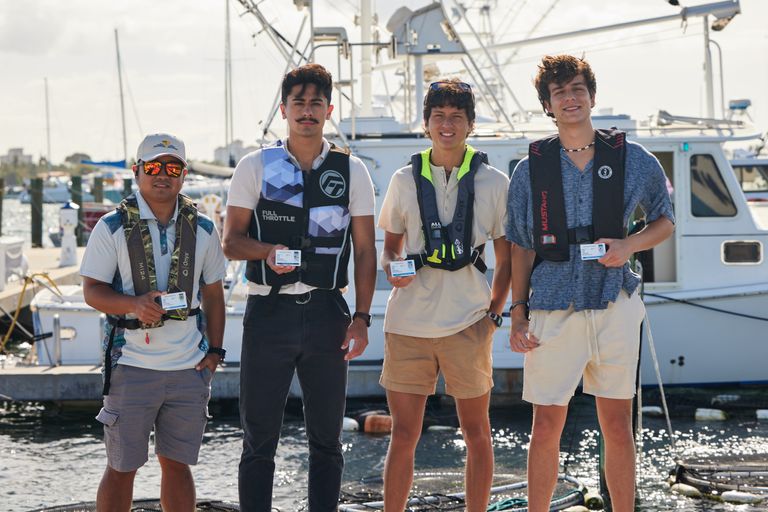10 Critical Tips for a Safe Boating Season
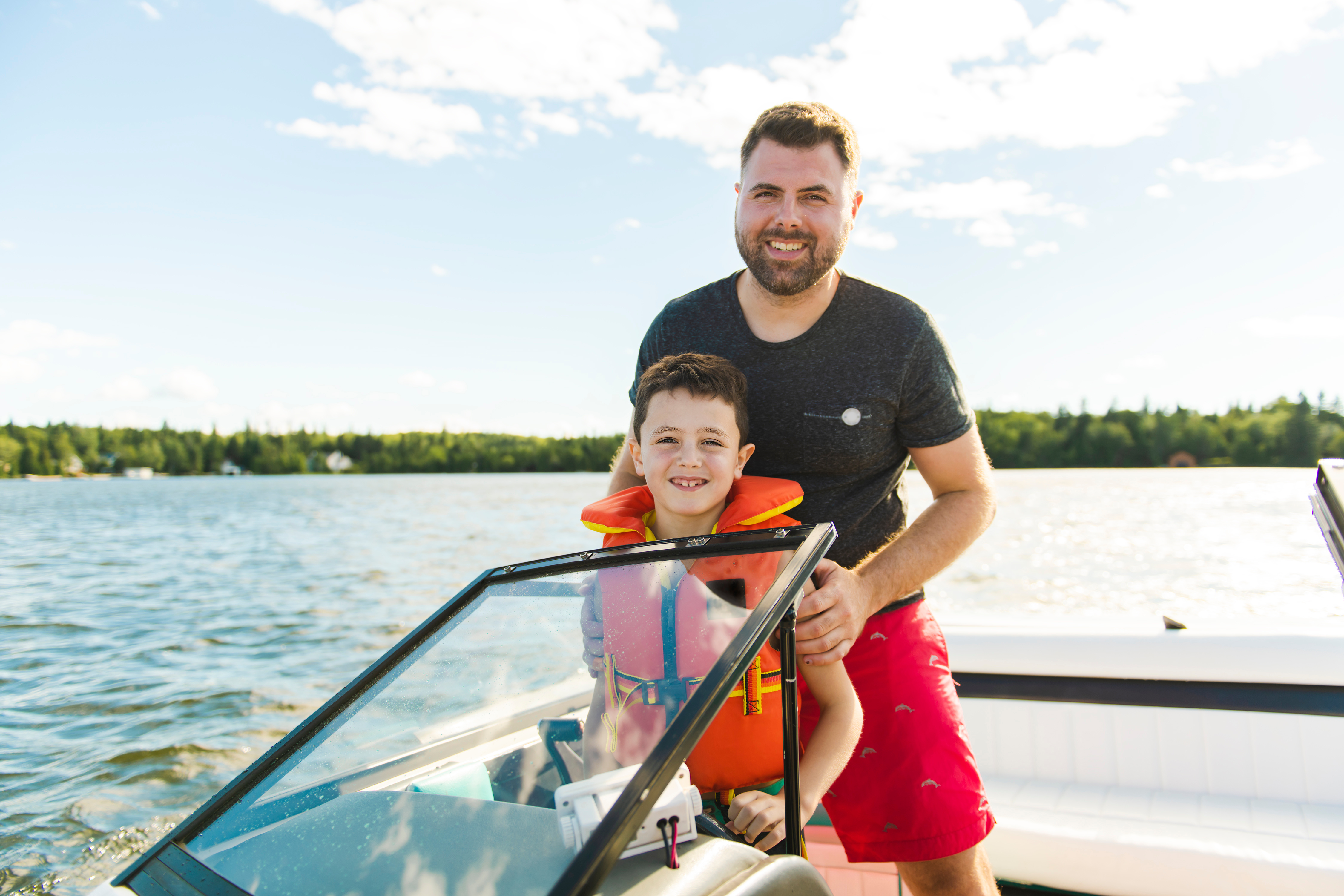
Whether you've taken a safety course and passed a boater exam (or not), boat operators must help everyone stay safe on the water. While boating is fun and relaxing, it's also dangerous without a good understanding of how to stay safe.
In 2022, the U.S. Coast Guard noted that 4,040 reported boating incidents resulted in 2,222 injuries, 636 deaths, and about $63 million in property damage.
What's the leading cause of these accidents? Operator inexperience.
The report highlights that 74% of the 636 boating deaths in 2022 happened because operators lacked proper boater safety education.
So, even if your state doesn't require boat operators to pass a safety course, it's one of the best things you can do before launching a boat this season. To supplement your course knowledge, keep reading for ten crucial boating safety tips to keep you safe every boating season!
Being Safe Saves Lives on the Water
Simply put: boating safety saves lives.
One of the best ways to advocate for safe boating practices is to participate in National Safe Boating Week, organized by the National Safe Boating Council every year. Their goal is to "advance and promote safer recreational boating experience through education, outreach, and training."
National Safe Boating Week happens May 18-24 this year. You can get involved with the Wear It campaign by pledging to wear a life jacket when fishing or boating.
However, beyond this special week designated for highlighting safe boating practices, the following ten tips can help keep you safe whenever you're on the water!
10 Tips for a Safe Boating Season
Whether you own a boat or you're ready to operate a boat this season, you are responsible for keeping your passengers and others on the water safe. To learn more about these safety practices and many other crucial aspects of boating with friends and family (or on your own), take a BOATERexam safety course.
1. Create a Float Plan (and Leave It Behind)
Before launching a boating trip, create a float plan and leave it behind with someone you trust to notify local authorities if you don't return at a planned time. This is especially crucial if you plan to boat alone.
A float plan includes:
- Your name and contact information
- The date (or dates) of your boating activities and when you plan to return
- Where you plan to boat
- Who you're with (and their contact information)
- Notes about the safety equipment you have on board
You can also leave a copy of the float plan at the marina.
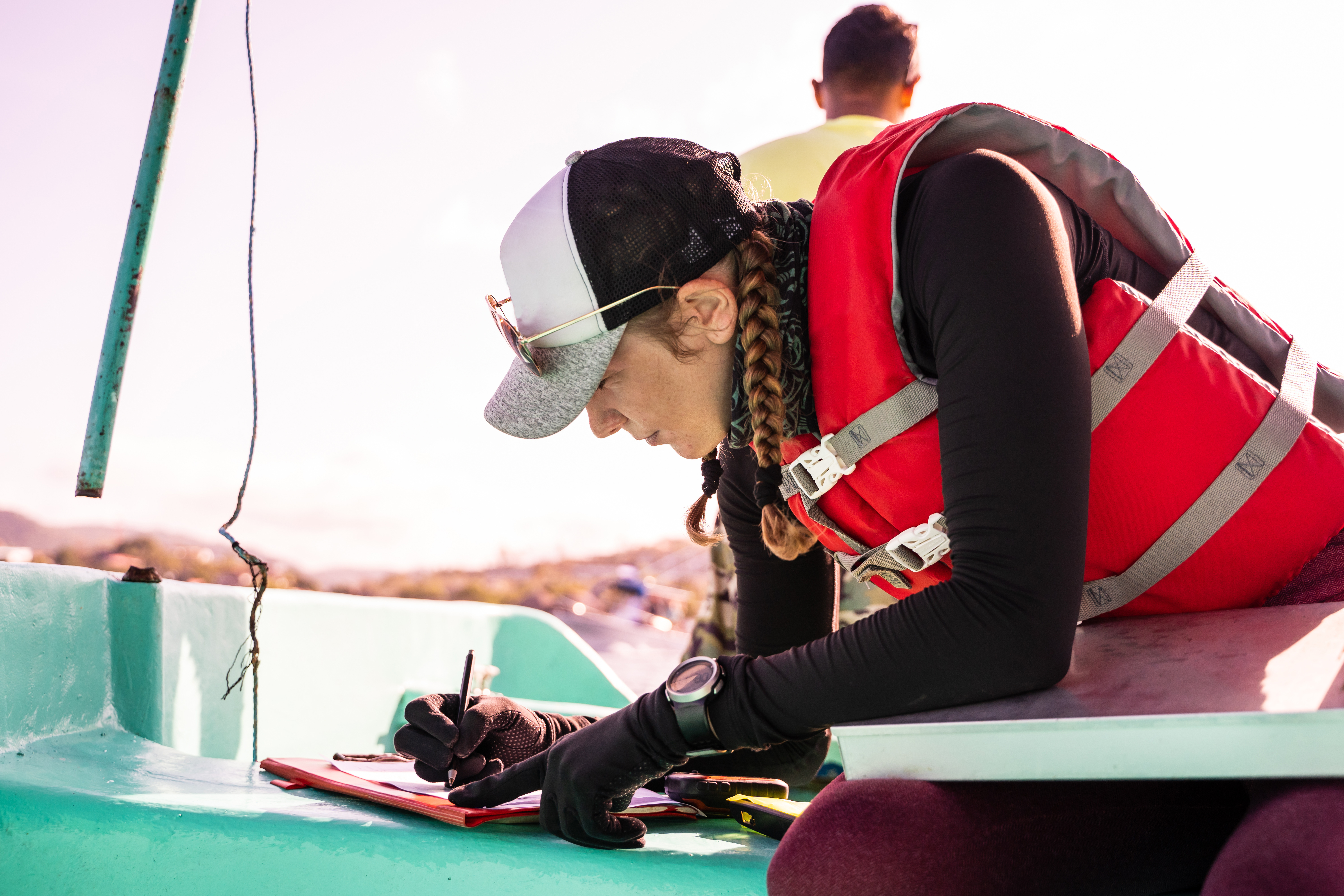
2. Conduct a Pre-Launch Checklist
No matter how new you are to boating or if you're an experienced skipper, every boat adventure starts with a pre-launch checklist.
Using an actual checklist helps you remember to check even the smallest things that can be easily overlooked, like ensuring the drain plug is in place and checking the bilge. Relying on your memory can cause you to skip a step or a crucial safety element that could help make your day safer.
3. Talk to Your "Crew"
If you're boating with friends or family (i.e., your "crew"), make sure they understand important safety aspects of being on a boat – before they come aboard.
Talk with them about wearing life jackets and point out where you keep the safety equipment. If you plan to let a friend operate the boat during your outing, encourage them to take a boater education course from a NASBLA-approved provider (like BOATERexm) before they take the helm.
4. Be Vigilant
A busy day at the lake can be exciting and get your adrenaline pumping. Even a quiet day of fishing can involve other fishing boats on the water near your favorite spot. Whether you're fishing or waterskiing with friends, the water can be full of distractions.
However, driver inattention and distraction are the biggest causes of boating accidents. So, while having fun with friends or casting your line for "the big one," keep an eye on other boaters or people in the water to help everyone stay safe.
5. Watch Out for Wildlife
Even if you get on your boat every day, you're a guest on the water. Lakes, streams, and oceans are home to many animals living in or near the water.
Whether the boat is moving or anchored and still, watch out for wildlife. Respecting the environment and animal habitats helps them continue to be places we can enjoy.
6. Promote Safety for Young and Old Alike
Boating with adults can be different than boating with kids. However, safety applies to everyone aboard, no matter their age.
As the boat's "skipper," you must ensure everyone understands how to stay safe on the water. You must also enforce the rules of safe boating.
Start by setting a good example of safe boating practices. Your crew is more likely to understand safe behavior when they see you do it first.
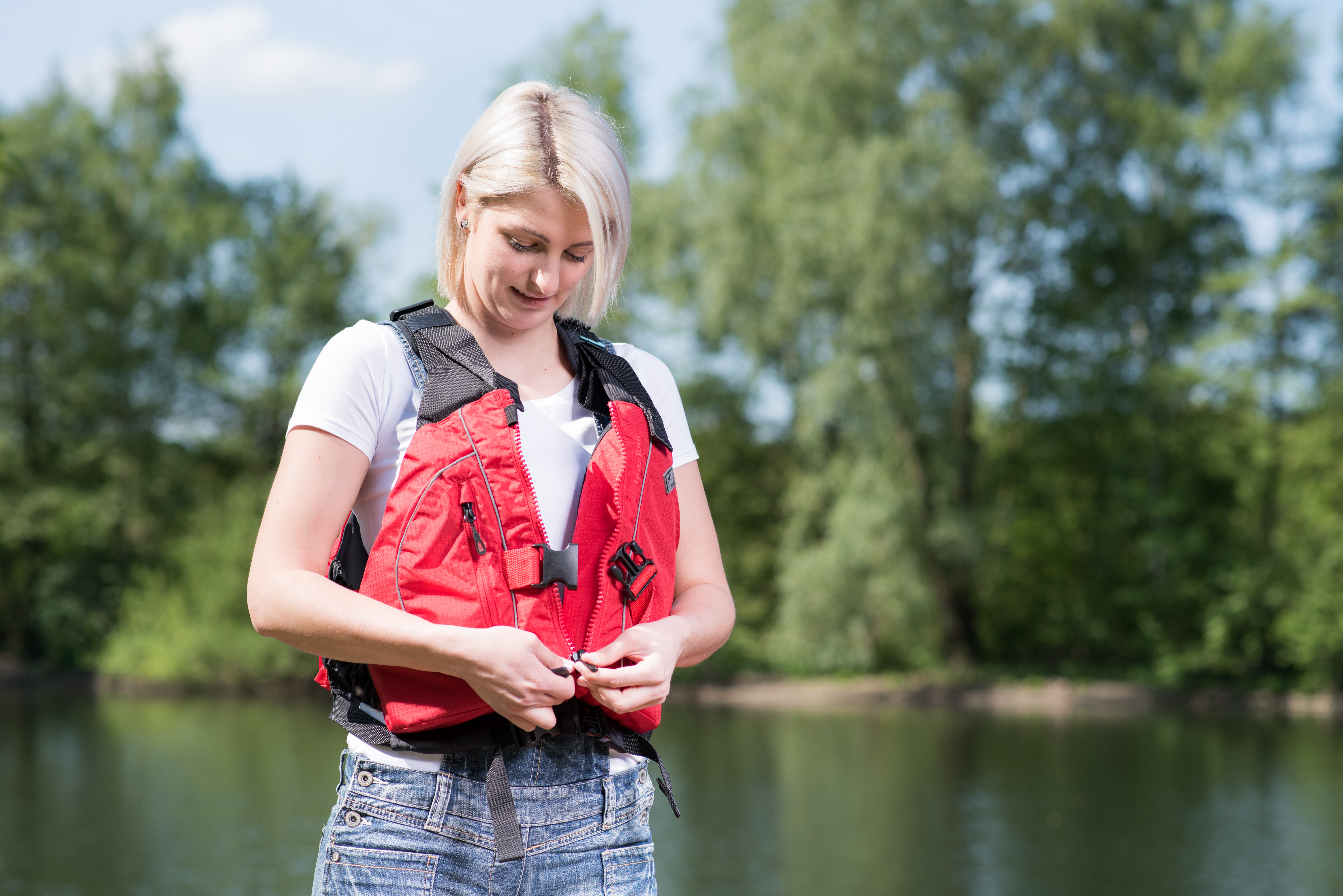
7. No One Goes Without a Life Jacket
Choosing not to wear a life jacket can change a life forever. So, whether they bring their own or you supply life jackets for friends and family, everyone on your boat should wear one while on the water.
However, not every life jacket is ideal for every boating activity. Make sure you have the right PFDs (personal flotation devices), and each person has one that fits.
Additionally, as you'll learn through your BOATERexam safety education course, U.S. Coast Guard-approved life jackets are the only ones you should consider when supplying your boat.
Did you know? We partner with the National Safe Boating Council to help boaters get high-quality life jackets at good prices before hitting the water.
8. Be Prepared for a Fire
While we hope it never happens to you, a fire on a boat is a critical safety issue. If a fire breaks out (large or small), you must act quickly with the right equipment on board.
During your pre-launch checklist, check to make sure you have a fire extinguisher. It is required boating equipment in most areas.
However, just having it with you isn't enough. Know how to use it! This information is covered thoroughly in a boater safety course and can save your life (and your boat) in case of a fire.
9. Know How to Boat Safely at Night
Even if your float plan says you'll be back before dark, it's important to understand nighttime boating protocol and safe practices. Operating a boat in the dark is significantly different than being on the water in daylight.
With less visibility, you'll need to understand the signals to send and receive from other boats in the dark. It's best to play it safe by being prepared if you get caught on the water after the sun goes down.
10. Have the Right Tools and Equipment
A fire extinguisher and life jackets aren't the only safety equipment you need before launching your boat. You also need additional safety equipment in case something goes wrong while on the water.
Make sure you have a radio, a distress signal, the right lights, docking and anchoring equipment, and more.
It can be hard to remember (or locate) every piece of equipment you need before launching. We recommend a Safety Equipment Checklist to ensure your boat has everything it needs before getting out on the water.
Use Good Navigation Tools
Digital tools can also help you stay safe and have fun on the water
Wavve Boating is an excellent tool to transition from online learning to the water. It's an app with dynamic nautical charts that automatically update for current tides and water levels. It also includes weather forecasting, crowdsourced information, and other features to help boaters stay safe. It's
After completing a boating education course through BOATERexam, don't forget your one-year free trial of Wavve Boating! With your safety education through our online courses and Wavve, you can boat safely every season.
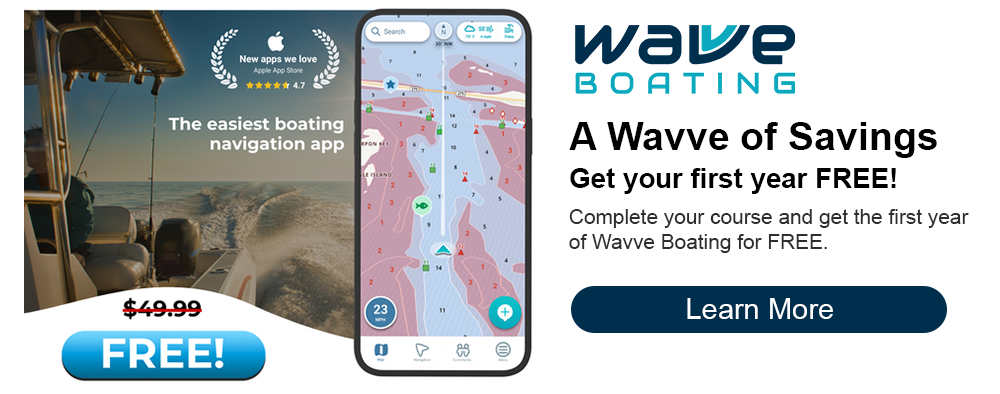
Enjoy Safe Boating with BOATERexam
With these ten tips and a completed safety course, you're ready to launch!
To help family and friends or fellow boaters stay safe, you can recommend an online safety course before boating season begins. In the U.S., they can find and select the state they need. Or, in Canada, find the course they need here. Our courses are online and convenient to complete from anywhere.
Stay safe on the water this season!

